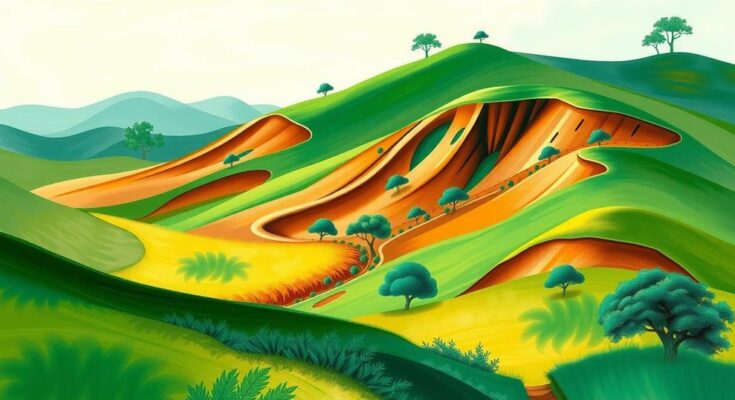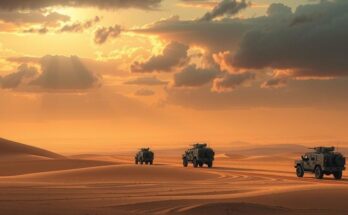President Trump is seeking a deal with the DRC for rare earth minerals after negotiations with Ukraine faltered. The DRC’s rich mineral resources, crucial for technology like electric vehicles, have drawn the attention of the U.S. amid geopolitical tensions with China. The ongoing conflict with the M23 rebel group complicates the situation, raising humanitarian concerns as multiple nations vie for influence over the DRC’s mineral wealth.
United States President Donald Trump has redirected his focus towards the Democratic Republic of the Congo (DRC) in his quest for rare earth minerals. After negotiations with Ukrainian President Volodomyr Zelenskyy stalled, his administration seeks a potential deal with the DRC, a nation currently plagued by conflict and whose mineral wealth is pivotal for modern technology.
The eastern region of the DRC has been embroiled in conflict for over a decade, primarily due to the M23 rebel group, which has gained significant ground this year, capturing the city of Goma and overpowering government forces in Bukavu. “There is an economic reason why they’re in this region. This is a region that is very rich in many of the world’s rare earths and very valuable minerals,” noted Yinka Adegoke, Africa editor of the Semafor website.
The DRC is a critical source of minerals essential for electric vehicles and various high-tech products. This includes coltan, prevalent in smartphones, and cobalt, which is valuable for battery technology. Mr. Degrade emphasized that, “This is a very rich region.”
The M23 group, predominantly consisting of Tutsi, has historical ties with Rwanda, a neighboring country. Recent talks aimed at achieving peace have been initiated by DRC’s President Felix Tshisekedi and Rwandan President Paul Kagame, although the rebel group’s response remains uncertain.
Reports suggest that Trump may appoint Massad Boulos as a peace envoy to the DRC, given the nation’s vast mineral resources. A spokesperson from the U.S. State Department recently affirmed that the DRC possesses a substantial share of critical minerals vital for advanced technologies, indicating the strategic interest of the United States.
The geopolitical landscape regarding cobalt extraction places the U.S. in direct competition with China, which controls approximately 80 percent of this crucial resource in the DRC. According to Mr. Adegoke, “China is the dominant player in extracting these minerals in Congo,” and the U.S. is seeking to assert its influence in the region as part of a broader strategy.
Accusations of Rwandan support for M23 complicate the situation, raising questions about the conflict’s dynamics. Stephanie Wolters from the South African Institute of International Affairs stated, “M23’s military capability really is Rwanda’s military capability,” indicating the substantial military assistance M23 receives from Rwanda.
The conflict has already resulted in significant civilian casualties, with over 8,000 deaths reported during recent battles and close to 80,000 refugees fleeing into neighboring countries. The Congolese military’s inability to defend its territory has further exacerbated the chaos, as noted by Ms. Wolters, highlighting issues of corruption and inadequate support for soldiers.
The withdrawal of multinational forces and diminishing international support pose a severe risk as M23 continues to advance. Consequently, the DRC’s vast mineral resources remain a crucial, yet tragic, factor in the ongoing conflict, as geopolitical interests overshadow the plight of its people.
The current situation illustrates that while the DRC’s mineral wealth holds immense economic potential, it often acts more as a curse than a blessing, with tens of billions of dollars at stake in this high-stakes conflict.
In summary, President Trump’s interest in the Democratic Republic of the Congo underscores the complex interplay of geopolitics and mineral wealth. The ongoing conflict, driven by the M23 rebel group and involving external influences, highlights the DRC’s critical role in the global supply chain of rare earth minerals. Given the pressing need for these materials in technology and the electric vehicle market, the urgency for a peace agreement is paramount. However, the humanitarian crisis and the instability exacerbated by external interventions pose serious challenges for the DRC’s future.
Original Source: www.abc.net.au




